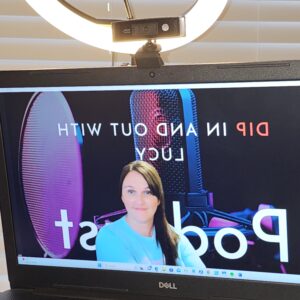
In recent years the term, well-being has become more prevalent.
We talk about our physical well-being, mental well-being, spiritual well-being and so on….
I think it’s fair to say quite a few of us in life will have a “rock bottom” moment. That moment when you’re not sure if you can take any more of the crap that has been laid at your door. The moment you feel absolutely desperate and afraid.
I never really considered what well-being meant until I personally hit rock bottom.
Consumed with taking care of my children and making sure I did my best to give them a “normal” life after we found ourselves with no choice but to ask my parents if we could move in with them.
I was desperate, humiliated, embarrassed and terrified for the future.
The house I thought I would spend the rest of my life in, was gone.
Homeless.
With two young children to support.
Everything seemed to change in the blink of an eye and I was powerless to stop any of it.
Looking back now, I realise it was THE greatest blessing of my life.
What I thought was tragedy was in fact triumph.
And what I believed to be my failures were my greatest success stories.
I slowly started to realise over time that human beings can survive so much of what life throws at us.
We fall, we get back up. Then we fall again and we get back up. We are incredible.
And do you know what the best part was for me?
I got to start over again.
I know some would say that the thought of starting your life over again at 38 years of age with two children sounds like hell.
But for me, it was a chance. A fresh start and a chance to live a life I deserved.
And part of what I deserved, was to take care of my own well-being.
I had always tried to “fix” everything. Make sure everyone else was happy. But in doing that, I put my own needs last and that eventually takes its toll on a person.
Thinking about all of this then made me think of those individuals impacted by domestic abuse that I’ve worked with – and I can promise you, the last thing they think about is their own well-being.
And it also made me think of those who have been able to leave an abusive situation. This, more often than not, is the most dangerous time and it’s when things can get even worse than you could possibly imagine.
It can take several attempts to leave an abuser and for some, eventually returning to their abuser feels like their only option. “Better the devil you know.”
They have become so used to the life they had. It becomes their “norm.”
Whatever the circumstances and whatever the situation, one thing is clear.
That the abuse has a huge impact on an individual’s well-being.
So how can someone even consider their well-being when they have so much to process and so much damage has been done?
In all honesty, I think a person has to get to the point where they want to start to look after their well-being. Nobody can be forced into it.
It can make people feel selfish to consider their own needs. Especially, when the needs of the abuser have been put first and had become paramount.
However you choose to take care of your own well-being know this. It is a small step in taking back control of your life. And it doesn’t have to cost the earth!
Starting off with something as simple as a walk. Either on your own or with someone you feel comfortable around. It doesn’t have to be climbing Mount Everest! It can be a walk round the block or your local park.
I am not saying for one second that it’s easy and it will take time. You will make every excuse to yourself that there is too much to do and you don’t have the time. But when your well-being is on the line, taking time for you is probably the most crucial and important step you’ll take!
It won’t happen overnight. It will take time and it still can be a struggle not to fall back into old ways of thinking and feeling.
Because your thoughts very much affect your feelings and you can spiral.
Just try to make sure that you check in with yourself.
How you’re feeling and what you’re thinking.
And please, ask for help. There is no shame in asking for help and support. So much support and help out there is free and it could be an absolute life saver for you.
Even just reading my blogs or listening to an episode of DIP in and out with Lucy can offer some relief even if only briefly.
You don’t always have to be the one giving 100% all the time.
You are allowed to stand back and take care of your own well-being.
You are allowed to ask for help and support.
I want to share one very important lesson for anyone who has experienced domestic abuse.
And it’s this.
It is 100% OK if some days the most you can say is, “I have given the best I could today.”
Staying present and living in that moment, is all you can do some days.
But I do ask you to do one thing for me.
NEVER give up.
When you have those moments where you feel as though you’re not going to make it through the day, because you fear what tomorrow will bring.
Remember this,
“Tomorrow is always fresh, with no mistakes in it.” – Lucy Maud Montgomery
You CAN start over. And you have the chance to live a life you deserve.
If this blog resonates with you or someone you know, visit my
Resources Page for useful links and support.


 Cart is empty
Cart is empty 







